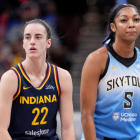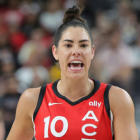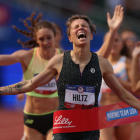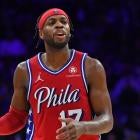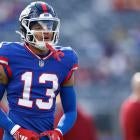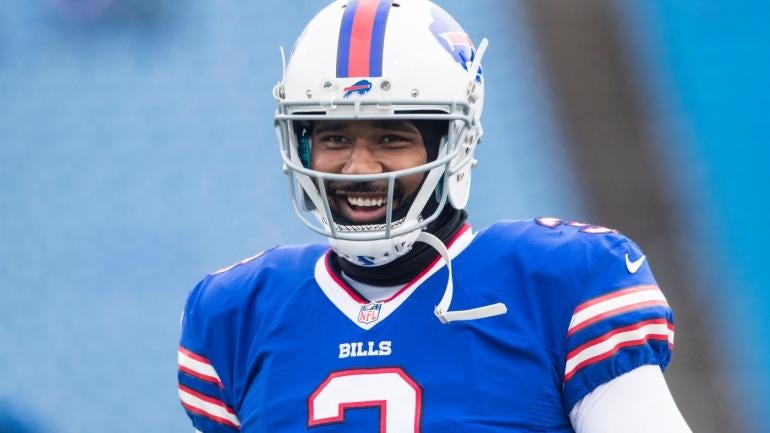
Perception is not always reality. Quarterback draft analysis is often spoken matter-of-factly when there is actually a high variance of potential outcomes often reliant upon supporting cast, coaching staff, inner building dynamics and more. While many draft classes have been deemed a "bad quarterback draft," it does not always play out in that fashion.
The phrase "bad quarterback draft" is subjective so there was one loose parameter set to weed through each class 2000 and later: one quarterback taken in the first round. I say loose because there was one exception to go along with the three classes fitting that descriptor:
2022
Games Played | Games Started | Pass Att. | Completion% | TD | INT | Yards | Pass rating | |
Kenny Pickett: Round 1 (No. 20 overall) | 13 | 12 | 493 | 62.3 | 11 | 12 | 3,093 | 77.4 |
Desmond Ridder: 3 (74) | 7 | 7 | 203 | 63.1 | 4 | 1 | 1,261 | 85.0 |
Malik Willis: 3 (86) | 8 | 3 | 61 | 50.8 | 0 | 3 | 276 | 42.8 |
Matt Corral: 3 (94) | 0 | 0 | 0 | 0 | 0 | 0 | 0 | -- |
Bailey Zappe: 4 (137) | 4 | 2 | 92 | 70.7 | 5 | 3 | 781 | 100.9 |
Sam Howell: 5 (144) | 4 | 3 | 118 | 64.4 | 4 | 6 | 840 | 75.5 |
Chris Oladokun: 7 (241) | 0 | 0 | 0 | 0 | 0 | 0 | 0 | -- |
Skylar Thompson: 7 (247) | 7 | 2 | 105 | 57.1 | 1 | 3 | 534 | 62.2 |
Brock Purdy: 7 (262) | 12 | 8 | 261 | 67.0 | 17 | 4 | 2,110 | 107.0 |
Pickett is the unquestioned starter in Pittsburgh for the time being. Offensive play-calling has presented its own limitations so the jury is still out on the second-year quarterback. Howell is the starter in Washington. His performance has been up and down as expected. Ridder has been more down than up in his first season as the franchise's starting quarterback. Finally, San Francisco has turned the offense over to Purdy after trading away Trey Lance and allowing Jimmy Garoppolo to sign elsewhere. Purdy has shown the most out of this quarterback class thus far despite being "Mr. Irrelevant." He also has the advantage of playing on an already NFC contender, however.
All in all, the returns on this "bad quarterback class" has been positive. It is too soon to tell how many of these quarterbacks end up being long-term starters in this league or how many settle into backup roles once their teams find other options. Willis, Zappe and Thompson have also made starts but that was more out of necessity than each team projecting confidence in that player.
The modern-day NFL is very impatient and reactionary. Teams are willing to move on from first-round quarterback selections quicker than usual, which means more quarterbacks are being given an opportunity to perform. Those additional quarterbacks better be able to make the most of that limited opportunity because teams will move on from them even quicker. There is also a greater emphasis on keeping quarterbacks on their rookie contracts to counter balance the rising costs of franchise players at a variety of positions.
2013
Games Played | Games Started | Pass Att. | Completion% | TD | INT | Yards | Pass rating | |
EJ Manuel: Round 1 (No. 16 overall) | 30 | 18 | 590 | 58.1 | 20 | 16 | 3,767 | 77.1 |
Geno Smith: 2 (39) | 65 | 54 | 1,681 | 63.2 | 68 | 49 | 11,935 | 85.7 |
Mike Glennon: 3 (73) | 40 | 31 | 1,147 | 60.1 | 47 | 35 | 7,025 | 78.6 |
Matt Barkley: 4 (98) | 19 | 7 | 363 | 58.4 | 11 | 22 | 2,699 | 66.6 |
Ryan Nassib: 4 (110) | 5 | 0 | 10 | 90.0 | 1 | 0 | 128 | 152.1 |
Tyler Wilson: 4 (112) | 0 | 0 | 0 | 0 | 0 | 0 | 0 | -- |
Landry Jones: 4 (115) | 18 | 5 | 169 | 63.9 | 8 | 7 | 1,310 | 86.2 |
Brad Sorensen: 7 (221) | 0 | 0 | 0 | 0 | 0 | 0 | 0 | -- |
Zac Dysert: 7 (234) | 0 | 0 | 0 | 0 | 0 | 0 | 0 | -- |
B.J. Daniels: 7 (237) | 8 | 0 | 6 | 50.0 | 0 | 0 | 6 | -- |
Sean Renfree: 7 (249) | 2 | 0 | 7 | 42.9 | 0 | 1 | 11 | 10.7 |
For years, the 2013 draft class looked like it was a supplier of below-average starting quarterbacks or quality backups. Smith was the starter in New York until he suffered a fractured jaw when IK Enemkpali punched him in 2015. Ryan Fitzpatrick became the starter and Smith's 2016 season was lost midway through due to a torn ACL. He signed with the Giants as a free agent the following offseason and began his journey as a backup across the NFL until last season. Seattle named the 30-year-old starter and he delivered in a big way.
Glennon had been a prime example of a quality backup quarterback capable of occasionally stepping in as a starter. Quarterbacks taken outside of the top 100 in this draft class essentially made no impact.
2010
Games Played | Games Started | Pass Att. | Completion% | TD | INT | Yards | Passer Rating | |
Sam Bradford: Round 1 (No. 1 overall) | 83 | 83 | 2,967 | 62.5 | 103 | 61 | 19,449 | 84.5 |
Tim Tebow: 1 (25) | 35 | 16 | 361 | 47.9 | 17 | 9 | 2,422 | 75.3 |
Jimmy Clausen: 2 (48) | 21 | 14 | 472 | 54.0 | 7 | 14 | 2,520 | 61.9 |
Colt McCoy: 3 (85) | 56 | 36 | 1,220 | 62.6 | 34 | 32 | 7,975 | 79.9 |
Mike Kafka: 4 (122) | 4 | 0 | 16 | 68.8 | 0 | 2 | 107 | 47.7 |
John Skelton: 5 (155) | 20 | 17 | 602 | 53.2 | 15 | 25 | 3,707 | 63.0 |
Jonathan Crompton: 5 (168) | 0 | 0 | 0 | 0 | 0 | 0 | 0 | -- |
Rusty Smith: 6 (176) | 3 | 1 | 45 | 51.1 | 0 | 4 | 234 | 29.3 |
Dan LeFevour: 6 (181) | 0 | 0 | 0 | 0 | 0 | 0 | 0 | -- |
Joe Webb: 6 (199) | 104 | 4 | 159 | 56.6 | 3 | 6 | 888 | 63.1 |
Tony Pike: 6 (204) | 1 | 0 | 12 | 50.0 | 0 | 0 | 47 | 60.1 |
Levi Brown: 7 (209) | 1 | 0 | 3 | 66.7 | 0 | 1 | 24 | 35.5 |
Sean Canfield: 7 (239) | 0 | 0 | 0 | 0 | 0 | 0 | 0 | -- |
Zac Robinson: 7 (250) | 0 | 0 | 0 | 0 | 0 | 0 | 0 | -- |
Bradford is one of the most overlooked quarterbacks in recent history. He was really good when available but lost nearly four seasons worth of play due to injury. The Oklahoma product also had the distinction of being traded twice in his career and is one of the more fun "what-ifs" in the past decade.
Tebow was taken in the first round but that was a surprise. He landed with the only organization willing to make that decision. His career, which spanned just three seasons on an active roster, was highlighted by an overtime playoff victory against Pittsburgh in 2011.
McCoy has been the quintessential backup quarterback capable of delivering victory as a spot starter. The 2010 draft class also produced two of the NFL's most promising assistant coaches: Kafka (Giants offensive coordinator) and Robinson (Rams pass game coordinator/quarterbacks coach).
2000
Games Played | Games Started | Pass Attempts | Completion% | TD | INT | Yards | Passer Rating | |
Chad Pennington: Round 1 (No. 18 overall) | 89 | 81 | 2,471 | 66.0 | 102 | 64 | 17,823 | 90.1 |
Giovanni Carmazzi: 3 (65) | 0 | 0 | 0 | 0 | 0 | 0 | 0 | --- |
Chris Redman: 3 (75) | 30 | 12 | 500 | 57.2 | 21 | 14 | 3,179 | 78.6 |
Tee Martin: 5 (163) | 3 | 0 | 16 | 37.5 | 0 | 1 | 69 | 25.3 |
Marc Bulger: 6 (168) | 96 | 95 | 3,171 | 62.1 | 122 | 93 | 22,814 | 84.4 |
Spergon Wynn: 6 (183) | 10 | 3 | 152 | 46.1 | 1 | 7 | 585 | 39.5 |
Tom Brady: 6 (199) | 335 | 333 | 12,050 | 64.3 | 649 | 212 | 89,214 | 97.2 |
Todd Husak: 6 (202) | 1 | 0 | 2 | 100.0 | 0 | 0 | -2 | 79.2 |
JaJuan Seider: 6 (205) | 0 | 0 | 0 | 0 | 0 | 0 | 0 | -- |
Tim Rattay: 7 (212) | 40 | 18 | 714 | 60.5 | 31 | 23 | 4,853 | 81.9 |
Jarious Jackson: 7 (214) | 5 | 0 | 22 | 50.0 | 0 | 1 | 114 | 46.4 |
Joe Hamilton: 7 (234) | 1 | 0 | 1 | 100.0 | 0 | 0 | -2 | -- |
The 2000 class was boom or bust. It produced Brady, Pennington and Bulger, but Rattay and Redman were essentially the only other contributors. Brady is a seven-time Super Bowl champion and the NFL's record holder for career passing yards and touchdowns. The best quarterback in league history played 23 seasons with the Patriots and Buccaneers before retiring last season. Every other quarterback in the class retired in 2011 or earlier.
Pennington won NFL Comeback Player of the Year TWICE in his career. He threw for nearly 18,000 yards over the course of 11 seasons. Bulger went to two Pro Bowls during his 11-year playing career.
Although regarded as a bad quarterback class, the 2000 class produced more than most classes with multiple first-round selections. His career timeline was intertwined with Kurt Warner and Trent Green as Bulger replaced Warner and Green replaced Bulger.









